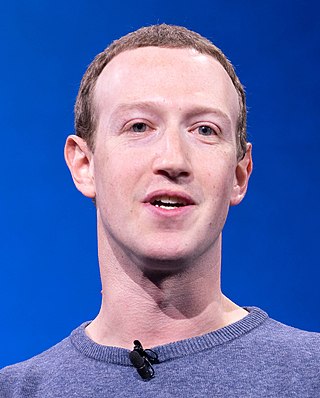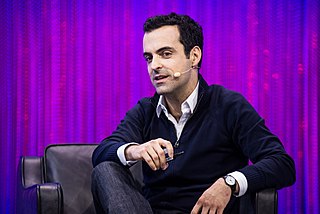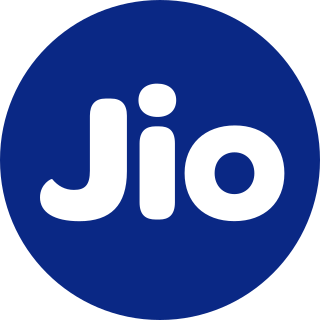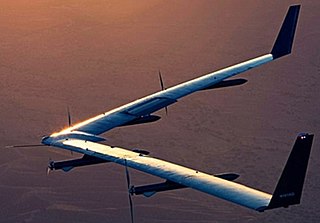
Marc Lowell Andreessen is an American businessman and software engineer. He is the co-author of Mosaic, the first widely used web browser with a graphical user interface; co-founder of Netscape; and co-founder and general partner of Silicon Valley venture capital firm Andreessen Horowitz. He co-founded and later sold the software company Opsware to Hewlett-Packard. Andreessen is also a co-founder of Ning, a company that provides a platform for social networking websites and an inductee in the World Wide Web Hall of Fame. Andreessen's net-worth is estimated at $1.7 billion.

Mark Elliot Zuckerberg is an American businessman and philanthropist. He co-founded the social media service Facebook, along with his Harvard roommates in 2004, and its parent company Meta Platforms, of which he is chairman, chief executive officer and controlling shareholder.

Facebook is a social media and social networking service owned by the American technology conglomerate Meta. Created in 2004 by Mark Zuckerberg with four other Harvard College students and roommates Eduardo Saverin, Andrew McCollum, Dustin Moskovitz, and Chris Hughes, its name derives from the face book directories often given to American university students. Membership was initially limited to Harvard students, gradually expanding to other North American universities. Since 2006, Facebook allows everyone to register from 13 years old, except in the case of a handful of nations, where the age limit is 14 years. As of December 2022, Facebook claimed almost 3 billion monthly active users. As of October 2023, Facebook ranked as the 3rd most visited website in the world, with 22.56% of its traffic coming from the United States. It was the most downloaded mobile app of the 2010s.

Internet in India began in 1986 and was initially available only to the educational and research community. General public access to the internet in India began on 15 August 1995. By 2023, India had more than 900 million Internet users. It is reported that in 2022 an average mobile Internet consumption in India was 19.5 GB per month and the mobile data usage per month rose from 4.5 exabytes in 2018 to 14.4 exabytes in 2022.
Snaptu pronounced "snap tu", previously known as Moblica was a free Israeli-made mobile application platform that ran on virtually every type of Internet-enabled mobile phone. It allowed the user to access popular services, varying from social networks like Facebook, Twitter, Flickr, ESPN CricInfo and Picasa to entertainment news, blogs, sports and local guides.

Facebook F8 is a mostly-annual conference held by Meta Platforms since 2007, intended for developers and entrepreneurs who build products and services around the website. The event has generally started with a keynote speech by Facebook founder Mark Zuckerberg, followed by various breakout sessions concentrating on specific topics. Facebook has often introduced new features and made new announcements at the conference.

Facebook is a social networking service originally launched as TheFacebook on February 4, 2004, before changing its name to simply Facebook in August 2005. It was founded by Mark Zuckerberg and his college roommates and fellow Harvard University students, in particular Eduardo Saverin, Andrew McCollum, Dustin Moskovitz, and Chris Hughes. The website's membership was initially limited by the founders to Harvard students, but was expanded to other colleges in the Boston area, the Ivy League, and gradually most universities in the United States and Canada, corporations, and by September 2006, to everyone with a valid email address along with an age requirement of being 13 or older.

WhatsApp is an instant messaging (IM) and voice-over-IP (VoIP) service owned by technology conglomerate Meta. It allows users to send text, voice messages and video messages, make voice and video calls, and share images, documents, user locations, and other content. WhatsApp's client application runs on mobile devices, and can be accessed from computers. The service requires a cellular mobile telephone number to sign up. In January 2018, WhatsApp released a standalone business app called WhatsApp Business which can communicate with the standard WhatsApp client.
Facebook Zero is an initiative undertaken by social networking service company Facebook in collaboration with mobile phone-based Internet providers, whereby the providers waive data (bandwidth) charges for accessing Facebook on phones via a stripped-down text-only version of its mobile website. The stripped-down version is available online only through providers who have entered the agreement with Facebook. Photos are not loaded by default. Users may still choose to view them by clicking through but regular data charges apply to photo use.
Google Free Zone was a global initiative undertaken by the Internet company Google in collaboration with mobile phone-based Internet providers, whereby the providers waive data (bandwidth) charges for accessing select Google products such as Google Search, Gmail, and Google+. In order to use this service, users were required to have a Google account and a phone that had access to an internet connection.

Hugo Barra is a Brazilian computer scientist, technology executive and entrepreneur. From 2008 to 2013, he worked in a number of product management roles at Google, including vice president and product spokesperson of its Android division. From 2013 to 2017, he worked at Xiaomi as vice president of global operations. From 2017 to 2021, he worked as vice president of Virtual Reality and head of the Oculus division at Meta Platforms. In May 2021, he left Meta to join health technology startup Detect as CEO.

Digital India is a campaign launched by the Government of India to make its services available to citizens electronically via improved online infrastructure and by increasing Internet connectivity. The initiative includes plans to connect rural areas with high-speed internet networks. It consists of three core components: the development of secure and stable digital infrastructure, delivering government services digitally, and universal digital literacy.
Mechanisms for establishing rules ensuring Net neutrality in India, are at present mainly enforced by the Telecom Regulatory Authority of India (TRAI). At present, there are no specific legislation regarding Net Neutrality in India.
Airtel Zero was a platform launched on 6 April 2015 in India by Bharti Airtel, a multinational telecommunications service company across South Asia and, at the time, the largest cellular service provider in India, with 192.22 million subscribers. As per reports, Airtel Zero was a platform through which Airtel would have offered users free access to certain mobile applications and services from companies who had signed up with Airtel.

Nikhil Pahwa is an Indian journalist, digital rights activist, and founder of MediaNama, a mobile and digital news portal. He has been a key commentator on stories and debates around Indian digital media companies, censorship and Internet and mobile regulation in India. He is the founder of 'Save the Internet' that was instrumental in successfully opposing Facebook's Free Basics programme in India on the basis that it limited competition and violated net neutrality. Pahwa, along with some volunteers of 'Save the Internet' co-founded the Internet Freedom Foundation in 2016 and resigned in 2018. Pahwa was earlier the editor of ContentSutra, which was acquired by the Guardian Media Group. He was named one of India Today Magazine's "Indians of Tomorrow" in 2012, a TED fellow in 2016, and an Asia21 Young Leader in 2019.

Jio is an indian telecommunications company and a subsidiary of Jio Platforms, headquartered in Navi Mumbai, Maharashtra. It operates a national LTE network with coverage across all 22 telecom circles. Jio offers 5G, 4G and 4G+ services all over India and 5G service almost All Over India. Its 6G service is in the works.

The Facebook Aquila is an experimental solar-powered drone developed by Facebook for use as an atmospheric satellite, intended to act as relay stations for providing internet access to remote areas. The Aquila first flew on 28 June 2016 with a second aircraft successfully flying in 2017. Internal development of the Aquila aircraft was stopped in June 2018.
Net neutrality is the principle that governments should mandate Internet service providers to treat all data on the Internet the same, and not discriminate or charge differently by user, content, website, platform, application, type of attached equipment, or method of communication. For instance, under these principles, internet service providers are unable to intentionally block, slow down or charge money for specific websites and online content.

Meta Platforms, Inc., doing business as Meta, and formerly named Facebook, Inc., and TheFacebook, Inc., is an American multinational technology conglomerate based in Menlo Park, California. The company owns and operates Facebook, Instagram, Threads, and WhatsApp, among other products and services. Meta ranks among the largest American information technology companies, alongside other Big Five corporations Alphabet (Google), Amazon, Apple, and Microsoft. The company was ranked #31 on the Forbes Global 2000 ranking in 2023.













